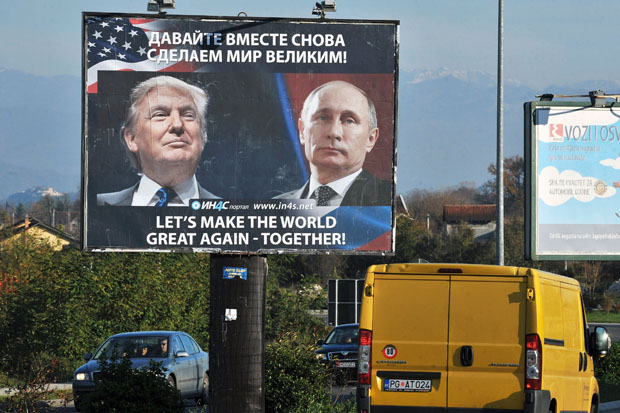Nobody knows anything. William Goldman’s famous first law of the movie business — that no one can say before the fact what’s going to be a hit or a flop — is our new rule of political punditry. Pollsters, experts, markets tell us with scientific certainty what’s going to happen. Then the voters come along and ruin everything. Brexit. Trump. Ed Balls and Strictly Come Dancing. Who knew? As last Tuesday dawned in New York, the US election was deemed a formality. Newsrooms had lovingly compiled their historic ‘First Woman President’ editions. The final polls pointed to a clear Hillary win. And then the actual votes rolled in, uncannily like Brexit. Clinton was doing worse than expected where she needed hefty totals. Trump was doing better. Just as the UK’s big cities voted Remain, only to be swamped by the non-urban Leavers, the early clamour of Clinton victories in Miami, Philadelphia and Cleveland was drowned out by the silent roar of smaller towns and counties in Florida, Pennsylvania and Ohio. President Trump. Nobody knows anything.
Like Brexit, the shock of Trump’s victory was greeted the next morning with a keening that was taken up like the call of the muezzin from the minarets of traditional and social media. Confirmation of the result came in the early hours of November 9: that’s 11/9 in the US convention, 9/11 in Europe, and of course the distraught members of the establishment quickly wrapped themselves in the symbolism. Much of New York City stumbled around in the fog of mourning. The principal of the school to which a colleague sends his child sent a note to parents explaining how the school would lead their children through their grief. ‘And now when we most want to weep and mourn, we must come to work and be a source of both solace and inspiration to all our young students,’ it said. Tom Friedman, the blowhard, self-anointed intellectual voice of proper-thinking elites (the New York Times), went on TV to pronounce Trump’s victory a ‘moral 9/11’. The difference, he said, was that the first 9/11 had been inflicted on us by others. This one we had inflicted on ourselves. Thus, 60 million Americans were instantly denounced as moral terrorists. And Trump is accused of extremist language!
The media and the educational establish-ments may have been in mourning but the markets loved it. The Dow Jones Industrial Average moved up and kept moving in its biggest weekly gain since 2011. Interest rates rose sharply as investors anticipated both rising growth and more debt and inflation. The Trump agenda is a curious mix of pro-growth, pro-business measures — infrastructure spending, big tax cuts — and alarming anti-growth, anti-business populism like protectionism and punitive measures against companies that ‘ship jobs overseas’. The markets have chosen to bet for now that we’ll enjoy the former and never get the latter. We’ll see.
On Friday, I’m invited to Trump Tower for the inaugural post-election interview. The man himself lives in the penthouse up top and descends for his daily grind, as it were, to the 26th floor. He sweeps in and greets us, just back from Washington and a first meeting with his presidential predecessor. The helmet of hair is even more golden than usual, having received a fresh post-triumphal, presidential burnishing. Someone once said that Trump is one of those businessmen who absorbs the ideas of the last person he spoke to, and in our conversation, he is clearly eager to demonstrate that his meeting with President Obama has woken him up to the need to be more presidential. He’s at pains to stress he’ll govern pragmatically. He declines politely to say whether he still wants to imprison Hillary.
On Monday I’m in Washington for the Wall Street Journal’s annual CEO Council, a gathering of corporate globalists nervously breaking bread with leading figures from the Trump transition. Rudy Giuliani is on fine form, gleefully telling me he’s going to be Secretary of State. We poll a sample of the nation’s top chief executives in the room and discover that 50 per cent of them voted for Hillary. Just a third voted for Trump. Nobody knows anything. All of this mayhem — Brexit, Trump, a rising populist tide shattering the stable world of our elites — reminds me of a moment from the hit Broadway musical Hamilton about the life and times of perhaps the most gifted of the founding fathers, Alexander Hamilton. As the British troops surrender at Yorktown to General George Washington, they play a mournful rendition of an old drinking song that captures the improbable enormity of it all — the world’s mightiest empire brought low by a motley crowd of deplorables: ‘The World Turned Upside Down’.






Comments